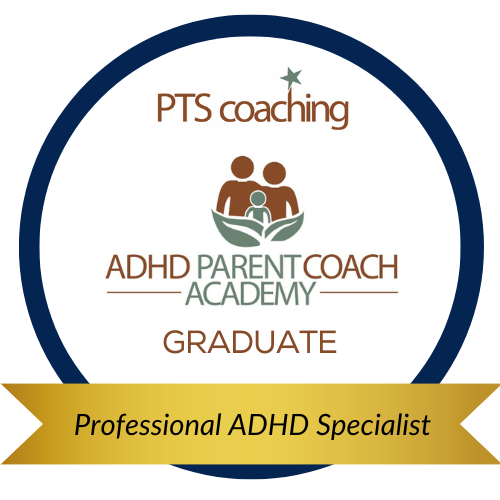Executive Function Coaching for Middle School Students
Stephanie Singer | September 12, 2025
Middle school often brings heavier workloads, shifting schedules, and heightened emotions. For many tweens and teens, this is the stage where executive function (EF) challenges start to stand out.
Executive functions are the brain’s self-management processes, governed by the prefrontal cortex. Some core EF skills include working memory, emotion regulation, flexible thinking, planning, and organization – competencies that allow kids to focus, manage time, and follow through on tasks. When one or more of these skills are lagging in development, kids may struggle to meet expectations at home, school, or with peers.
At times mistaken for a lack of motivation or effort, these struggles are often rooted in executive function challenges. They show up differently in each child – from time blindness, to planning hurdles, to frustration tolerance – and many experience a blend of challenges across multiple skills.
This is especially true for children with ADHD, since the part of the brain that governs executive function develops more slowly – often by two to three years – though it does reach full maturation. This developmental lag helps explain why ADHD and executive function struggles are so closely connected.
What Is Executive Function Coaching?
Executive function coaching is practical, skills-based support that blends teaching, practice, and gentle accountability.
Areas of focus often include –
Task initiation: Starting homework, projects, or chores without prolonged resistance, often by first naming the feeling beneath the avoidance (e.g., overwhelm, boredom, or worry)
Organization: Managing time, school materials, and personal belongings with clear systems that reduce frustration and/or confusion
Working memory: Using planners, checklists, or reminders with clear notes (what the task is, where to find it, when it’s due), which helps minimize barriers when starting
Emotion regulation: Managing frustration, overwhelm, or boredom so follow-through is more realistic, while celebrating small wins to build momentum
Planning and prioritizing: Breaking work into manageable steps, setting mini-deadlines and checkpoints, and using visual tools like analog clocks to make time feel more concrete
Flexible thinking: Shifting between activities and handling the unexpected with greater adaptability
Self-monitoring: Recognizing errors, checking work, and making adjustments independently
Social skills support: Practicing communication, self-advocacy, and peer interactions through role-play and guided practice
Daily routines: Establishing routines for key parts of the day that reduce conflict and create smoother transitions
With thoughtful shifts in tools, routines, supports, and expectations, kids steadily build habits that reduce daily friction and increase their sense of competence. For instance, setting up a Time Timer for 15-minute work sessions with short breaks can ease homework stress, reduce burnout, and build perseverance.
A Tailored Approach
Coaching is personalized from the start. In our first session, we introduce the brain science behind executive function in a student-friendly way, normalizing their experience and showing that these skills grow with practice. From there, we reflect on individual strengths and areas for growth, which guide ongoing goals.
Parents can expect –
Fewer conflicts around starting or finishing tasks, with greater follow-through
Practical systems (planners, checklists, checkpoints) that foster independence
Steady progress as habits take shape through practice, not quick fixes
Middle school can be a formative stage of growth – a season when kids are testing their independence and we, as parents, are learning how to step back while still offering support. With consistent guidance, students can strengthen executive function skills, building the confidence and capacity they need for future challenges. And when we, as parents, use a strengths-based lens, we’re reminded that growth unfolds when we meet kids where they are – not where we wish they were.







